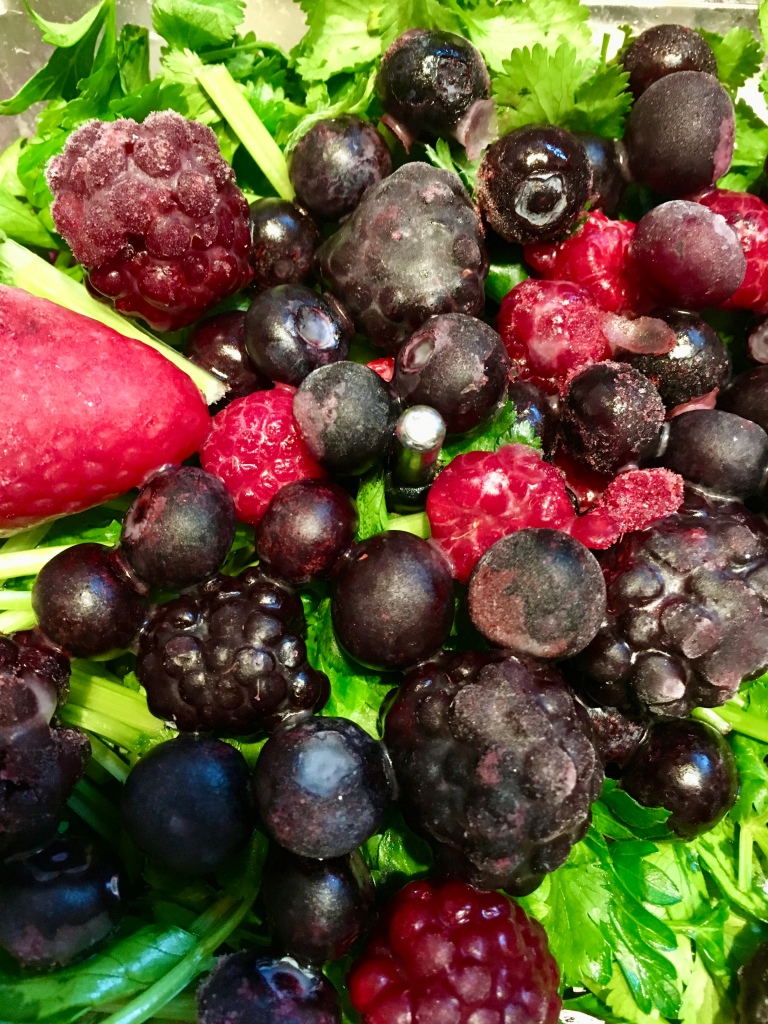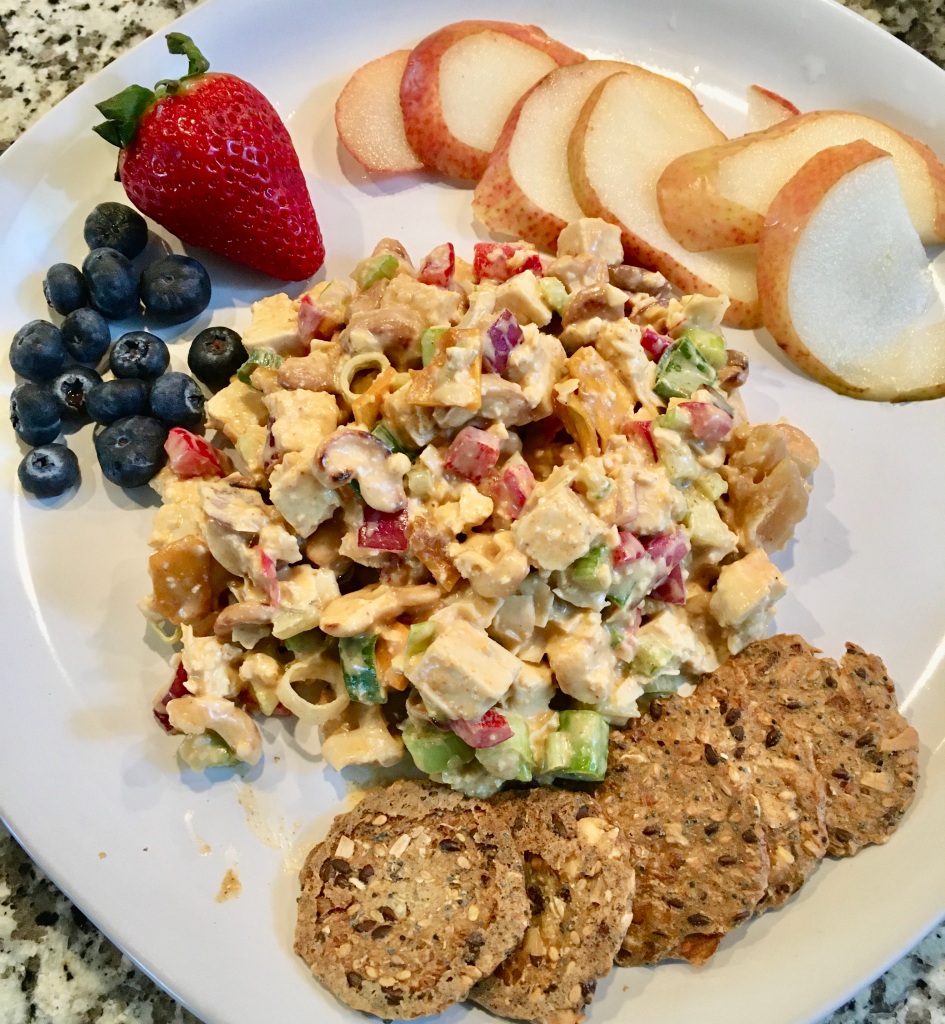
A few months after the pandemic first started wreaking havoc, internet searches worldwide began showing a significant increase in the quest for weight loss information, according to Google Trends. It seems covid robbed us of not only our individual freedoms, but also our willpower. Many of us have put on weight as a result of gym closures, more time at home, fewer social interactions, and higher stress levels. In addition, several news stories at the inception of the virus focused on increased consumer demand for comfort foods such as hamburgers & fries, hot dogs, pizza, and ice cream. These foods, which are often filled with artificial ingredients, salt, sugar, fat, and excess calories, can offer a brief sense of stress relief as a result of their effects on the brain’s reward center, much like cocaine or heroine. But once that fades, we can be left with a sugar crash, extra calories to burn (or store as fat), an unhappy gut, guilt, and an overall sense of feeling worse than before we ate them.
So what can we do to feel better and drop the extra weight? Learn to work with, rather than neglect, the needs of our bodies. As you may have already discovered from past articles, the health information shared on Micro of the Macro is well outside the box, based on new or unpopular scientific studies. The star of this article, the gut’s microbiome, has become an area of extensive study over recent years, and the findings are changing the way we understand the concepts of health and disease.

I’ve written before on the importance of this colony of bacteria in our guts (check out this article for my tips on immunity). What I didn’t mention in past posts is the fact that these microbes are often in charge of the foods we crave and those we choose to eat. Yes, you read that right, in charge. According to an article from the US National Library of Medicine/National Institutes of Health entitled Is Eating Behavior Manipulated by the Gastrointestinal Microbiota?, the gut bacteria that we “host” can manipulate not only the brain’s reward center, but also our tastebuds, cravings, and mood. Furthermore, the less diverse the bacteria colony (largely a consequence of antibiotics and nutrient-depleted foods), the more power the bacteria has to manipulate us, increasing our chances of obesity. In fact, the control our gut bacteria has over us is so exacting that the article refers to them as puppet masters! Frightening, huh?

In order to regain mastery of your cravings and relationship with food, and therefore your weight, it is necessary to diversify your microbiome. Making healthy choices, such as organic fruits and vegetables, local and seasonal if possible, is a great first step. Introducing new foods to your diet results in new bacteria in your gut. Probiotic food and drinks, such as miso, sauerkraut, tempeh, kombucha, and kefir result in greater numbers of diverse healthy bacteria. Fiber-rich prebiotic foods, such as onions, garlic, leeks, asparagus, artichokes, dandelion greens and jicama support the growth of those good bacteria. And a healthy, diversified colony of microbes can help you make healthier food choices in the days, months and years ahead.

Fiber is extremely beneficial for gut bacteria, according to Justin & Erica Sonnenburg, PhDs, researchers at Stanford’s University of Medicine. Fiber is actually a carbohydrate (something worth considering if you’re doing keto or another low-carb diet) that is indigestible. The Sonnenburgs’ research team has done long-term studies of the gut bacteria of a hunter-gatherer tribe in Tanzania, whose members, young and old, are considered models of vitality. Their studies revealed that each member of the tribe consumes between 100 and 150 grams of dietary fiber daily. Most Americans, it pains me to say, get about 15 grams per day.

In addition to being a favorite food of your good gut bacteria, fiber also helps your body eliminate toxic chemicals, such as artificial food additives, pesticides, and environmental pollutants. These toxins, often stored in fats, interrupt the body’s normal functionings of blood sugar and cholesterol, which can lead to diabetes and obesity. (For more on this, check out Environmental Pollution and Diabetes: a Neglected Association.)
Proper hydration makes your microbiome happy, as well. (For additional info, see my article Hydration – Does It Really Matter?) Healthy fats like seeds, nuts, and avocados are deeply hydrating and should be a part of your daily intake. Drinking plenty of mineralized water (made with fresh lemon juice and/or Himalayan salt) & eating lots of melons, cucumbers, celery, grapes, peaches, berries, & other water-rich fruits keeps your cells & fascia hydrated. When your body is not properly hydrated, you become unable to regularly eliminate food and toxins. You have less energy. You can feel dull and heavy. Your blood thickens, making your heart and kidneys work harder. (For more on that idea, check out New York Times best-selling author Anthony William’s book Liver Rescue.) A poorly-hydrated body cannot function optimally, and may very well thwart your weight loss efforts.

Eating fewer flesh foods, dairy, and eggs may also help. Not to say that you need to become vegan, but I’d like to share my experience with you. I adopted a whole foods plant based vegan diet in stages. I became vegetarian first, and lost so much weight, so fast, that it scared me. In fact, I started binging on granola to stop the weight loss! Years later, after learning about the evils of animal protein, I gave up cheese and eggs, which made me totally vegan. Again, I lost a lot of weight in a very short period. A testament, I believe, to the power of good plant food bacteria crowding out animal food bacteria in my gut.
The folks that live in Blue Zones, the places that have the healthiest, longest-lived populations in the world, typically eat whole food plant based diets. Usually, if they do eat meat or dairy, it’s only a few times a month, and in very small portions. In these areas, it is common for people to age without the chronic diseases that plague the majority of Americans, and to have leaner builds.
Weight loss is something many of us struggle with, especially when we turn to food as a source of comfort. Choosing to supply your gut’s microbiome with what it needs goes a long way in helping you accomplish your weight loss goals and feel better in general. And, not just for now, but for a lifetime.

Blessings for a Healthy Microbiome,
Lisa
Note: The content of this article is for educational and informational purposes only, and is not intended as medical advice. I am not a medical professional. Please consult with a qualified health care professional before acting on any information presented herein. Any statements about the possible health benefits of any subject discussed here have not been evaluated by medical professionals or the Food & Drug Administration and are not intended to diagnose, treat, cure or prevent any disease or illness.
And Another Note: The original version of this post was shared in July, 2020.

Very helpful. I suspect I’m a classic case you describe. Bugs, bug off.
LikeLiked by 3 people
Hi, Deacon G, and thanks for being the first to comment! Making friends with the bugs that make their home in our bodies is so important! Hope your weekend is going well! 🌞
LikeLiked by 2 people
Better, now that I heard from you. 😊
LikeLiked by 3 people
What a nice thing to say! 🌞
LikeLiked by 2 people
Now, it’s not the virus that make me gain weight … but our winter 👀.
However, we still try and indulge in all our seasonal fruit and veggies – in the fruit corner, it’s time for apples, avocado’s, dates and hooray for the veggie department, because I can eat my favourite broccoli, cauliflower, loads of peppers and spinach.
Thanks for reminding me to stay seasonal Lisa 👍🏻.
LikeLiked by 5 people
Hi, Corna, all your favorite fruits & veggies are so yummy and healthy! We picked up some dates at the farmers market last weekend that were the largest and softest we’ve ever had! Thanks for your ongoing support, my friend. 🌞
LikeLiked by 3 people
Unfortunately, cursed with my fathers narrow palate – I’d run miles away if I saw that blender shot you have — ironically my reaction is probably equally healthy ha!
LikeLiked by 5 people
LOL! My smoothies are actually tasty, even though they have lots of unusual ingredients! Have a great weekend, Brian! 🌞
LikeLiked by 2 people
Timely and good information for the dietary conscious. Thanks for sharing your personal experience.
LikeLiked by 3 people
Good to see you, Frank! Glad you enjoyed the post, & I appreciate your letting me know! 🌞
LikeLiked by 1 person
I am finding I just feel better when I eat better, though those cookies trip me up sometimes. I am not a vegetarian, but I do not eat chicken or have cottage cheese or feta everyday.
LikeLiked by 4 people
Hi, Sarah, and thanks for dropping by! I find that if I can avoid things like cookies (even vegan & GF cookies), I am less tempted to eat them. But if I give in and have even one, I become somewhat obsessed & want more each day until the package is finished! Hoping your weekend is sunny! 🌞
LikeLiked by 2 people
I really enjoyed reading this, Lisa. Lots of good information. I was having issues with lightheadedness and realized it was because of dehydration. Smoothies have helped me a lot and I drink 20 ounces of water before I even get out of bed. Thanks for the ideas on getting more hydration.
LikeLiked by 3 people
Hi, Carla, thanks for your comment! I like your morning water-drinking routine! Daily smoothies are probably prolonging my life, as I believe I was chronically dehydrated for decades. Good to hear you’re drinking them too! Sending you love & positive vibes for the Cali visit! 🌞
LikeLiked by 1 person
Some tasty photos, Lisa, to go along with your advice. Right now dehydration is especially important in Arizona with the heat. I learned about jicama many years ago when visiting my great-aunt in Arizona. I really like it, although my husband’s not quite as keen.
janet
LikeLiked by 3 people
Hi, Janet, you’re right: dehydration is a real problem here, and I believe it’s getting worse due to stronger, more frequent winds, as well as humidity in the single digits. I hadn’t seen that until this year. Glad you enjoyed the post! 🌞
LikeLiked by 2 people
Excellent Article Lisa.
Great tips.
Many helpful resources
Thank you.
Have a great weekend
LikeLiked by 3 people
Doc! I appreciate your kind words! Hoping your weekend is fun, as well! 🌞
LikeLiked by 2 people
Thank you Lisa
LikeLiked by 1 person
💜 This is Awesome so Pay Attention EveryOne, I AM Fortunate that My Body is Evolving; so I AM NOT!!! Really Eating AnyThing AnyMore unless My Body has a Craving, bit like a pregnant woman
…💛💚💙…
LikeLiked by 2 people
Hi, Yernasia, and thanks for adding to the conversation! You’re right: our personal choices assist in the evolution of our bodies, for better or for worse. Enjoy the weekend! 🌞
LikeLiked by 2 people
💜 YOU!!! ARE Most Welcome SupaSoulSis and “Enjoy YOUR!!! WeekEnd” Too; there’s a Plus Size Advocate whose Name Escapes Me at the mo’, I’ll let YOU KNOW!!! who SHE!!! is when I Remember…so to The Boys Supporting The Sisterhoods; raise YOUR!!! Glass and CHEERS!!!
…💛💚💙…
LikeLiked by 2 people
💜 …HER!!! Name is Ena if YOU!!! Have Trouble Finding HER!!! Let Me Know; for NOW!!! SHE!!! is Taking a Break from WP at the mo’ …
…💛💚💙…
LikeLiked by 2 people
For a few years now, I’ve only drunk water. It started out as a challenge for a year but now I’m just used to it. The only exception is tea, homemade fruit smoothies my mother makes in the blender and non-alcholic wine only for special occassions. This is the first time I’ve heard of the importance of hydration. Everyone says that you need to drink at least two litres in the day but they’ve never explained why so clearly before. I guess I need to work on drinking more in the day rather than two fills of my not-so-big bottle. I’ve also wanted to be vegan for a while now but I’m unable to prepare my own meals and my family eats a lot of meat. I’m hoping to be one when I move out or maybe subscribe to a vegan food packaging service that delivers meals to your door (but those are SO expensive). Do you have any tips for alternatives to chicken for when my family has vegetables, rice, and a chicken leg? Would mixing in nuts with the rice work? Maybe that’s something I can already start to do.
LikeLiked by 5 people
Hi, Simone, and thanks for your thoughtful comment. Your hydration habits sound a lot like mine! Marinated tempeh or extra-firm tofu can help transition you from eating meat to veganism. Jack fruit is also a popular meat sub here, but the consistency is so much like meat, I can’t eat it! And, yes, nuts and seeds such as sunflower & pumpkin provide a good hit of protein, a nice crunch, and help fill you up. If you do switch to veganism, make sure you’re getting enough B12 & Vitamin D. I have to supplement them. Have a lovely weekend! 🌞
LikeLiked by 3 people
Thanks for the advice! I’ll definitely look into these since I think that sunflower seeds and jackfruit are fairly easy to attain here.
LikeLiked by 3 people
Very interesting and highly informative.
LikeLiked by 4 people
Hello, and thank you for your kind comment! 🌞
LikeLiked by 1 person
Thank you again for another very useful post Lisa. Is true, I noticed before that my cravings for bad food are at their lowest when my exercise routine is on track, but maybe a large reason lies in the fact that I choose my food very carefully at those times and eat very less processed food with a large quantity of fruits and vegetable.
But understanding how the body reacts certainly helps to appreciate the things and follow a better path a lot more.
My only problem as I see is, I love eggs, too much to be able to stop eating very easily. But I don’t eat a lot of them. Maybe 2 to 3 in a week.
LikeLiked by 3 people
Hi, Deb, I appreciate your comment. I agree: a good exercise routine & good eating habits seem to support each other & our bodies without much thought! A beautiful part of Nature’s design!
On another note, I’ve read some heart-wrenching reports of recent devastation in your part of the world. Hopefully conditions are improving?? 🌞
LikeLiked by 1 person
Brilliant, Lisa, what I really needed to read just now! Even though pandemic restrictions are easing here and we have actually been out recently to a beautiful location (see my latest blog) there is so much that is changed, especially in our own minds. We have reduced our meat intake but my wife and I agree that we need to do more. Your words here are inspiring us to go further. Thank you for pointing the way. Bless you 💐💐😊
LikeLiked by 3 people
Hi, Ashley, it makes me happy that you found my post useful! Restrictions are lifting here too, and I am so grateful! I certainly will check out your latest post. Have a great week, my friend! 🌞
LikeLiked by 2 people
Whilst the pandemic has had its effect on us there have also been unconnected health issues which predated the pandemic, meaning that the last 18/20 months have not been “normal” for us. Enjoy your week 🙏
LikeLiked by 3 people
So sorry to hear that, Ashley. Going forward, I do hope your lives improve dramatically! Much love to you! 🌞
LikeLiked by 2 people
Very informative, Lisa! As always a great post!
LikeLiked by 2 people
I am grateful for your kindness, Jyothi! 🌞
LikeLiked by 2 people
A lovely post, as always, Lisa! When dairy dropped for me about 1.5 years ago, I noticed a big shift. Partaking in a vegan diet today has been transformational for me. Have a wonderful week, my friend. 😊
LikeLiked by 2 people
Hi, Jeff, congrats to you for choosing to honor your body’s needs! I appreciate your sharing kindness & personal experiences. I hope your week will be glorious as well! 🌞
LikeLiked by 2 people
You’re most welcome, Lisa. Always! Thank you! Oh, by the way, the Silver Falls post is up, in case you’ve not seen the pics. 😊😊
LikeLiked by 2 people
This is very helpful Lisa. Thank you.
LikeLiked by 3 people
LaDonna, I appreciate your popping by! 🌞
LikeLiked by 2 people
I always enjoy your informative articles Lisa♥️.
LikeLiked by 3 people
Thanks again! 🌞
LikeLiked by 2 people
Thank You, Lisa! A very informative article. Most people know little about the microbiome. Thank You for bringing it to attention.
Also, Thank You for the Follow! I appreciate you stopping by. Have a Blessed Day! 💞💖
LikeLiked by 3 people
Thanks for the healthy tips Lisa, great article ❤
LikeLiked by 4 people
Hi, Hen, I’m happy you enjoyed it! I appreciate your reading and commenting. 🌞
LikeLiked by 2 people
Thank you so much for this most educative and informative post on what we need to eat for a healthy living, Lisa. A wonderful article and all the pictures are awesome.
LikeLiked by 2 people
I am grateful for your kind response, Kamal. Appreciative of your support! 🌞
LikeLiked by 1 person
You are always welcome dear Lisa. 🙏🏼🙏🏼🙏🏼🙏🏼😊😊
LikeLiked by 2 people
Interesting! You broke this down good. Gut health, fiber, and hydration was really what I’ll keep thinking about always. You really reminded me of the importance. And jicima is such a great food! Haven’t had that in awhile. Another fantastic and educational post!
LikeLiked by 3 people
I am grateful for your kindness, my friend! 🌞
LikeLiked by 1 person
Welcome! Your post are inspirational, instructional, and refreshing!
LikeLiked by 3 people
It makes me happy that you find them useful! Thanks again, my friend! 🌞
LikeLiked by 1 person
I do, for sure. Always learning when I read your posts. Thanks again! 🙂
LikeLiked by 3 people
Such a great article Lisa. I have never heard of jicima before and have just searched for it and I’m learning a lot!!! Haha, I’ll see if I can locate it in my local area (I live in Australia).
LikeLiked by 3 people
Thanks, Bree, I’m glad you enjoyed the post! 🌞
LikeLiked by 2 people
Such a comprehensive well done write up Lisa
💖❤️❣️
LikeLiked by 4 people
Thank you, my friend! 🌞
LikeLiked by 1 person
Food pictures are so tempting!
LikeLiked by 3 people
Hi, Veena, thanks for dropping by! I’m happy to tempt you in a healthy way! 🌞
LikeLiked by 1 person
👍
LikeLiked by 2 people
Whenever I read your blogs that pertain to our dietary habits, I find myself in the Land of Oz living as the scarecrow, tin man and cowardly lion. As the lion, I don’t have the courage to change. As the tin man, I don’t have the heart to change and as the cowardly lion, I don’t have the courage to change. I wish I had Glenda the Good Witch’s magic wand!
LikeLiked by 2 people
Sorry to hear that, my friend. But thanks for reading & commenting. 🌞
LikeLiked by 1 person
thanks
LikeLiked by 2 people
You’re most welcome! Thanks for dropping by! 🌞
LikeLiked by 1 person
Is what have been waiting for
LikeLiked by 1 person
Music to my ears! I’m glad you find it helpful. Thanks for letting me know! 🌞
LikeLike
Very nice read. Excellent suggestions about re-establishing the gut microbiome!
LikeLiked by 1 person
Hi, Lyn, thank you for stopping by! I appreciate your kind comment! 🌞
LikeLike
Great advice. Thank you! I like that you were very specific with your recommendations. Is there anything easy that we can make at home with probiotic benefits? I’m dairy-free so it’s a little more difficult to think of easy accessible options.
LikeLike
Hi! Thanks for visiting & commenting! I’m told sauerkraut is super easy to make at home, but I’ve never tried it. Just a little cabbage, salt, & time. Here’s a a link from the University of Minnesota on the process: https://extension.umn.edu/preserving-and-preparing/how-make-your-own-sauerkraut. I’m dairy-free as well, so I drink kefir water (purchased at the market), which is really good. Oh, and you can buy mellow miso, made with chickpeas, and make miso soup, adding veggies. Happy mid-week! 🌞
LikeLike
Thanks for getting back to me! I will check out the recipe and also the kefir water. Have a great rest of the week.
LikeLiked by 1 person
Of course! You too! 🌞
LikeLike
Thank you for sharing my post! 🌞
LikeLike
Very informative thank you, I’m blogging about my new weight loss journey and have just made a connection – as I have increased fibre and focused on microbes I have lost much of my sweet tooth – I had never connected the two – thanks
LikeLiked by 1 person
Hi, Isabella, thank you for visiting & sharing your experience. Happy to hear you found the info useful! Have a great week ahead! 🌞
LikeLike